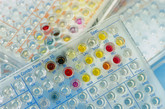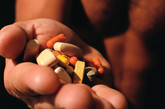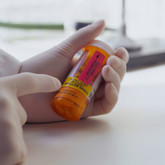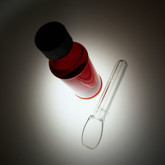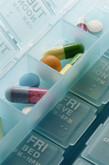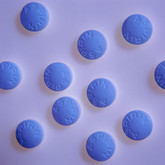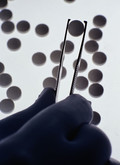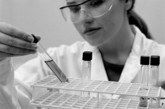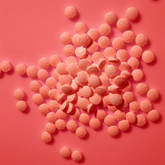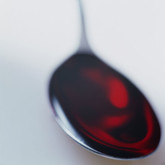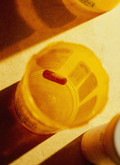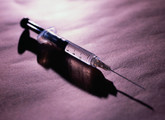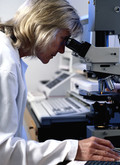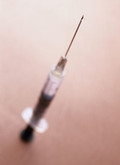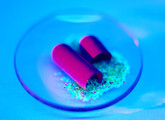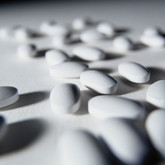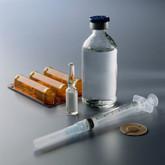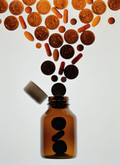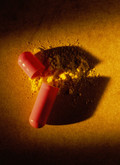Pharma News
Also noted on pharma: 6 April 2012
MPs concerned over medicines shortages in UK
Nineteen UK Ministers of Parliament (MP) have now signed a Parliamentary motion demanding that the government holds ‘urgent discussions’ on the selling of UK medicines abroad, which according to many is only serving to exacerbate the current drug shortage situation in the UK.
Source: Chemist & Druggist
Canada drug shortages
Sandoz, the generics unit of pharma giant Novartis, is at the centre of Canadian drug shortages, however, the company is assuring Canadians that it will not raise prices of drugs sourced from overseas.
Top 10 most read GaBI Online articles in 2011
2011 was a busy year and biosimilars was the hot topic of the year for GaBI Online.
GaBI launches GaBI Journal
- A new information source for generics and biosimilars -
Canada’s generics and brand-name pharma come together to tackle drug shortages
Canada’s Research-Based Pharmaceutical Companies (Rx&D) and the Canadian Generic Pharmaceutical Association (CGPA) announced on 12 March 2012 their commitment and financial support in responding urgently to prescription drug shortages.
Greece drug shortages
A severe drug shortage is threatening to undermine the health and welfare of Greek citizens as prescription drugs and even basic over-the-counter medicines are in increasingly short supply. Even finding common drugs such as Aspirin has become a major problem in Greece.
Score lines won’t delay generics
In an attempt to delay generics competition, Irish pharma company Warner Chilcott had added a second line or score to its Doryx (doxycycline hyclate) tablet. On 8 February 2012, FDA however denied the company’s citizen petition demanding that generic versions should also have the two score lines.
UK drug shortages are far from being solved
Despite attempts to solve problems with shortages of brand-name medicines in the UK, the issue is taking up more of pharmacists’ time, is far from being solved and may be getting worse according to an online stock survey carried out by pharmacists organisation Chemist+Druggist.
Drug shortage woes continue in the UK
Despite attempts to solve problems with shortages of brand-name medicines in the UK, the issue is far from beings resolved. The latest news is that the UK’s wholesalers have called for a ‘third-party monitoring and survey service’ to help tackle medicines shortages, while the Association of the British Pharmaceutical Industry (ABPI) is calling for sanctions on pharmacists that act as wholesalers.
Shortages of ADHD drugs expected during 2012
Drugs used to treat attention deficit hyperactivity disorder (ADHD) are in such short supply that FDA has reported that it receives hundreds of complaints from patients unable to fill their prescriptions.
UK drug shortages continue to affect pharmacists and patients
Shortages of brand-name medicines are as much of a problem in 2011 as they were in 2010, according to a survey by the Pharmaceutical Services Negotiating Committee (PSNC).
Hospira’s manufacturing troubles may add to drug shortages
Injectable generics specialist, Hospira, is under scrutiny again regarding drug shortages caused by its continuing lack of compliance with FDA requirements. In fact, one analyst from The Wall Street believes that the company has production problems that require long-term attention and that could lead to it receiving a consent decree from FDA.
Biosimilars and cancer drug shortages in Europe
With all the talk about drug shortages in the US it might be easy to forget the rest of the world, but it seems that drug shortages are also hitting European countries and are affecting not just generics, but also biosimilars.
Members of parliament to hold inquiry into UK drug shortages
On 21 November 2011, a group of UK members of parliament (MPs) announced that they will hold a full-scale inquiry into the continuing problem of drug shortages within the National Health Service (NHS).
Some relief from drug shortages in the US
There finally appears to be some light at the end of the tunnel, with one of the main victims of shortages—the sterile injectable drug propofol—finally being declared no longer in short supply by FDA.
Obama’s fresh attempts to ease drugs shortages in the US
Action by the President
President Barack Obama signed an executive order 31 October 2011 to address an escalating shortage of life-saving medicines, his newest effort to advance social and economic measures that have stalled in Congress.
Cancer drug shortages in the US
There is concern being expressed about the growing number of drug shortages among essential and lifesaving cancer drugs.
Sun Pharma offers to buy remaining Taro shares
Taro Pharmaceutical Industries confirmed that it had received a letter on 19 October 2011 from Sun Pharma offering to buy all outstanding shares of Taro, not currently held by Sun Pharma, at a price of US$24.50 per share.
Pfizer invests Euros 145 million in Irish biotech site
Pfizer, the world’s leading pharmaceutical company, is to make a substantial investment of Euros 145 million at its Grange Castle biotechnology manufacturing facility in Clondalkin, Dublin, Ireland, it was revealed 22 September 2011.
Drawing score lines on pills to delay generics
Brand-name drugmakers have come up with numerous ways in the past to delay generics from entering the market. These can include making slight changes to the doses, introducing a paediatric form, pay-for-delay deals or even buying the company that makes the active pharmaceutical ingredient. The latest novel tactic from an originator drug company, however, is coming simply in the form of a line.
Aurobindo forms generics joint venture with Russia’s Diod
India-based Aurobindo Pharma (Aurobindo) announced on 7 September 2011 that it had formed a joint venture with Russian company Ojsc Diod (Diod) to manufacture and sell pharmaceutical products in Belarus, Kazakhstan and Russia.
Pfizer and US pharmacies fight counterfeit medicines
Pfizer and the US National Association of Boards of Pharmacy (NABP) announced on 29 September 2011 that they have launched a new effort to draw attention to the risks associated with counterfeit drugs and to help patients learn how to buy medicines online safely.
Sun Pharma’s US operations partially on track
Sun Pharma announced on 19 September 2011 that its US arm has resolved issues raised by the country’s health regulator regarding violation of manufacturing standards.
Authorised generics implicated in pay-to-delay deals
A US Federal Trade Commission (FTC) report has found that authorised generics may reduce generics competition. The report also shows that some originator companies may have used agreements not to launch an authorised generic drug as a way to compensate would-be generic competitors for delaying entry into the market.
Eli Lilly in deal with Turkish generics company
American drugmaker Eli Lilly is in talks to form a partnership with, and potentially invest in, Turkish generic drugs company Mustafa Nevzat İlaç Sanayii A.Ş. (MN Pharmaceuticals), according to a Wall Street Journal report from 2 September 2011.
Medivir subsidiary BioPhausia sells generics business
Sweden-based Medivir announced on 25 August 2011 that its subsidiary BioPhausia had reached an agreement to sell its generics business (BMM Pharma) to Bluefish Pharmaceuticals (Bluefish) for SEK 26 million plus the value of inventories, some SEK 12 million. The staff of BMM Pharma will not be transferred in the acquisition.
GaBI Online launches its country focus section
- Provides Easy to Find Country Specific Information -
FIRST IN THE SPOTLIGHT – BELGIUM, THE NETHERLANDS AND UK
Generics of antibiotic Levaquin approved by FDA
The FDA has approved the first generic versions of Johnson and Johnson’s (J&J) blockbuster antibiotic Levaquin (levofloxacin), used to treat bacterial infections of the skin, sinuses, kidneys, bladder, and prostate caused by specific germs.
Record high drug shortages in the US
In 2010, there were 178 drugs that experienced shortages in the US, see Figure 1. This is a record high level and regulators blame quality and manufacturing problems for the crisis. Worse still, many of the drugs identified in 2010 remain unavailable or in short supply in 2011.
Watson buys Greek generic maker Specifar
Watson Pharmaceuticals announced on 25 May 2011 that it had bought the Greece-based generic manufacturer Specifar Pharmaceuticals for Euros 400 million with the intention of increasing its generics presence in Europe.
Pay-to-delay deals up by 60% in US
The number of deals struck between brand-name and generic pharmaceutical companies in the US are on the rise, despite efforts by the US Federal Trade Commission (FTC) to restrict agreements that delay the introduction of lower-cost medicines, according to a report from the agency.
Generics and biosimilars to drive down drug spending
A report published by IMS Health on 18 May 2011 predicts a slowing down of the growth in annual spending on medicines, with generics being one of the main contributing factors for this reduction.
Teva expands in Japan – buying generic’s maker Taiyo
Teva is on the prowl again—grabbing yet another smaller generics manufacturer—and increasing its presence in the lucrative Japanese market. The Israeli generics giant announced on 16 May 2011 that it had agreed to buy a 57% stake in Japan-based Taiyo Pharmaceutical Industry for US$460 million.
Teva finally gets troubled Irvine plant back in action
Teva told the Wall Street Journal, on 3 May 2011 that its injectables facility in the US, which was shut down a year ago after quality control problems, has now received the green light from the FDA and has restarted production.
Teva – a moving target
Teva Pharmaceutical Industries has grown rapidly since the forerunner of today’s firm was born in 1976. It has achieved its vision of becoming the world’s number one generics manufacturer, or as it puts it ‘its commitment to providing consumers with access to high-quality, affordable medicines’. It takes a great many legal wrangles and much forward planning to maintain this position.
China to power global generics development
Analysts estimate that China will overtake France and Germany as the world’s third-largest prescription medicines market in 2012, trailing only the US and Japan.
The latest on healthcare austerity in Greece
Greece is seeking to save approximately Euros 900 million a year and reduce the share of gross domestic product accounted for by healthcare spending from more than 10% in 2008 to under 6%. To help to achieve this, the maximum price of generic drugs will be set at no more than 60% of the originator product’s price, rather than 72% as originally proposed in September 2010.
Hikma buying into the US market
Hikma is buying some of Baxter’s injectable products that are sold primarily in the US, including chronic pain, anti-infective and anti-emetic products, along with the Cherry Hill manufacturing facility and the Memphis warehouse and distribution centre. Approximately 750 employees will also transfer as part of the arrangement.
Caraco and Sun to merge
Caraco Pharmaceutical Laboratories announced on 22 February 2011 that it had entered into a merger agreement with generics manufacturer Sun Pharmaceutical Industries and its wholly-owned subsidiary Sun Pharma Global.
FDA rejects second citizen petition for Teva’s glatiramer acetate drug
Teva Pharmaceutical Industries’ glatiramer acetate drug (Copaxone) is indicated for reduction of the frequency of relapses in patients with Relapsing-Remitting Multiple Sclerosis.
